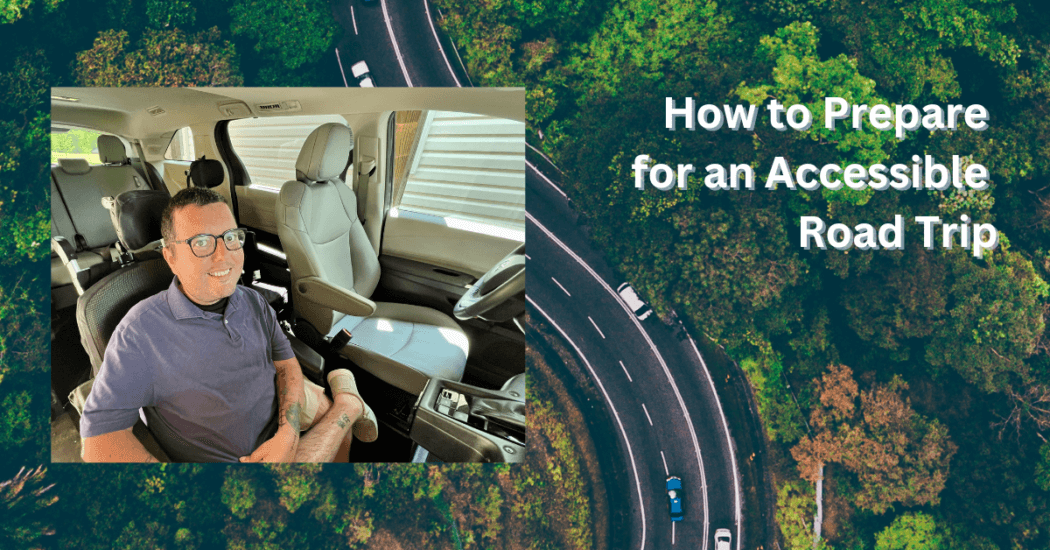Planning a road trip can be exhilarating, but for disabled travelers, it requires a little extra planning and various considerations. As someone who has experienced both the thrill of adventure and the hurdles of accessibility, I understand the importance of being well-prepared. In this guide, we’ll explore everything you need for successful road trips with disabled travelers, sharing personal anecdotes and practical tips that will make your journey enjoyable.
Key Essentials for Road Tripping with Disabilities
When preparing for a road trip, it’s crucial to gather the right equipment and resources.
Mobility Aids
- Wheelchair (manual or electric)
- Walkers or canes
- Portable ramps
Essential Accessory Gear
- Seat cushions for comfort
- Car mounts for devices
- Adaptive devices (like a reacher or dressing aids)

Health and Safety Supplies
- First-aid kit
- Personal medications
- Emergency contact information
Comparative Table of Mobility Aids
| Device | Weight | Price Range | User Rating |
|---|---|---|---|
| Standard Wheelchair | 35 lbs | $150 – $300 | ★★★★☆ |
| Electric Wheelchair | 100 lbs | $1200 – $3000 | ★★★★★ |
| Portable Ramp | 10 lbs | $100 – $250 | ★★★★☆ |

Planning Your Route
Choosing the right route is vital. Here are some tips to consider:

Choosing Accessible Roads
Use navigation apps that highlight accessible routes. Google Maps and Waze can provide information on road conditions and accessibility.
Plan Frequent Pit Stops
Schedule regular breaks to avoid fatigue. Look for rest areas with accessible facilities. My last trip had us stop every two hours, allowing everyone to stretch their legs and refresh.

Map Out Attractions
Research accessible attractions along your route. National Parks and museums often provide excellent amenities for disabled visitors. Always call ahead to make sure!
Destination Highlights
- Yellowstone National Park: Offers accessible trails and guided tours.
- San Francisco: Notable for its accessible public transportation and attractions like the Exploratorium.
- Washington D.C.: Home to numerous accessible museums and the National Mall.
Tips for a Comfortable Road Trip
Setting Up Your Vehicle
Make your car as comfortable as possible. Adjust seats for accessibility and ensure essential items are within reach.
Pack Snacks and Meals
Bring along healthy snacks and water. Having familiar food options can make the journey more enjoyable.
Entertainment Options
Download audiobooks, podcasts, or movies for entertainment. A good story can make time fly on long drives.
Personal Experience
On my recent trip to the Grand Canyon, I packed a variety of snacks and downloaded some great audiobooks. It kept our spirits high and made the long stretches of driving enjoyable.
Pros and Cons of Road Tripping with Disabled Travelers
Pros
- Flexibility in schedule
- Ability to explore off-the-beaten-path destinations
- Quality time with travel companions
Cons
- Potential accessibility challenges at various stops
- Fatigue from long hours of travel
- Limited access to certain attractions
Additional Tips for Traveling Disabled Persons
Consider Travel Insurance
Get travel insurance that caters specifically to disability needs. This can provide peace of mind in case of emergencies.
Create a Comprehensive Checklist
Before you leave, ensure you have everything packed. A checklist can help avoid last-minute stress.
Connect with Other Travelers
Join online forums and communities for disabled travelers. Sharing experiences and tips can be invaluable.
Frequently Asked Questions
What are the best vehicles for disabled road trips?
Vehicles with ample space and accessibility features such as ramps or lifts are ideal. Options include vans or SUVs. Make sure to test drive to ensure comfort and usability.
How do I find accessible accommodations?
Websites like Airbnb and Booking.com allow filtering for accessible properties. Always contact hosts to confirm accessibility features.
Should I involve the disabled traveler in the planning process?
Absolutely! Involving the traveler ensures that their desires and needs are met for a more enjoyable experience.
What should I do in case of an emergency?
Have emergency contacts, a communication plan in place, and know the locations of nearby hospitals along your route. Regularly check in with family and friends to keep them updated.
Are there travel grants for disabled travelers?
Yes, organizations like the National Center on Disability and Journalism provide information about grants and travel assistance for disabled individuals.
Final Thoughts
Traveling as a disabled person doesn’t mean forgoing adventure. With adequate planning, the right resources, and a sprinkle of patience, road trips can be incredibly rewarding experiences. The memories made during these journeys can last a lifetime, making every mile worthwhile.
Remember, every traveler is unique, so adapt these tips according to specific needs. Safe travels!